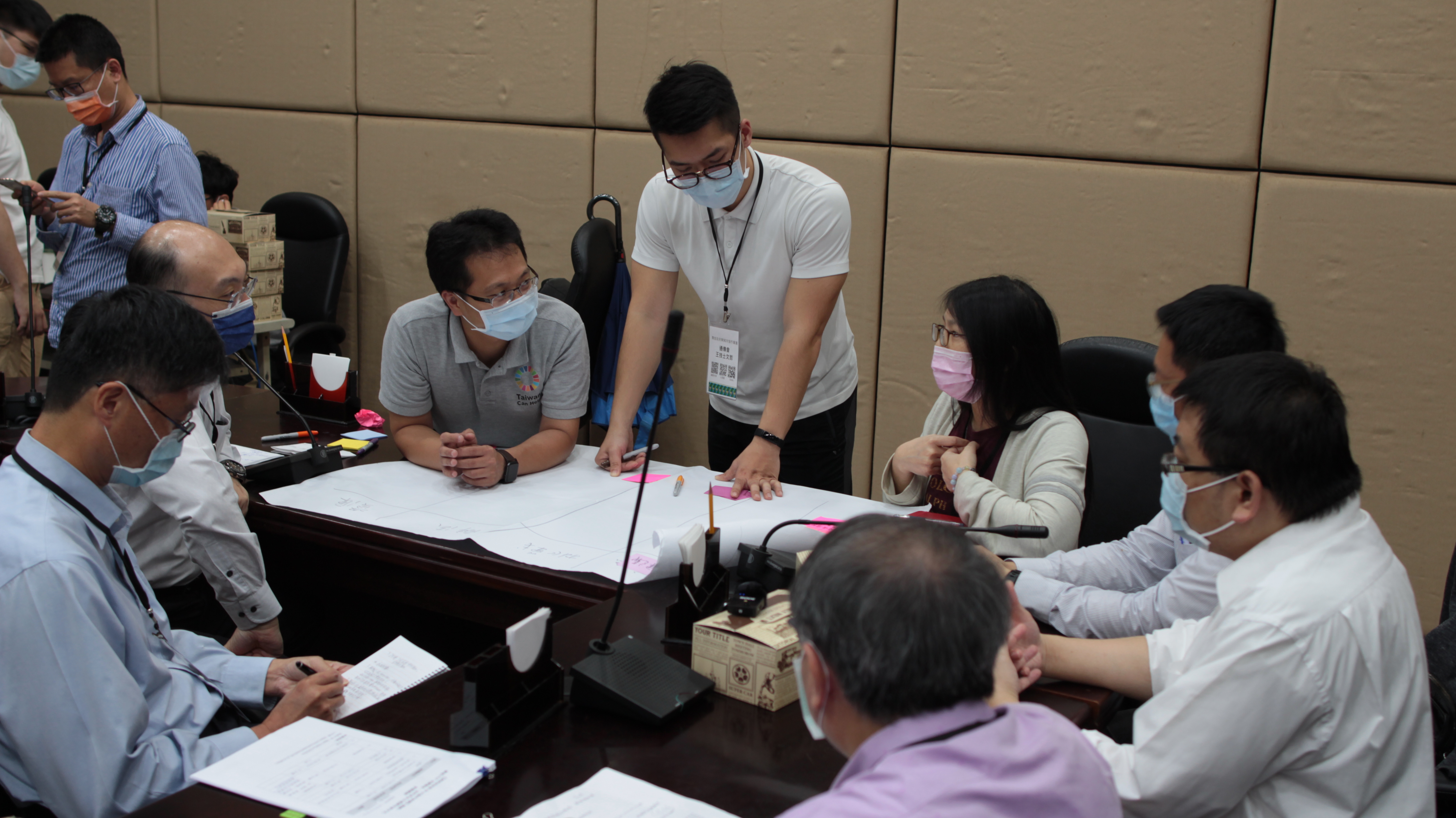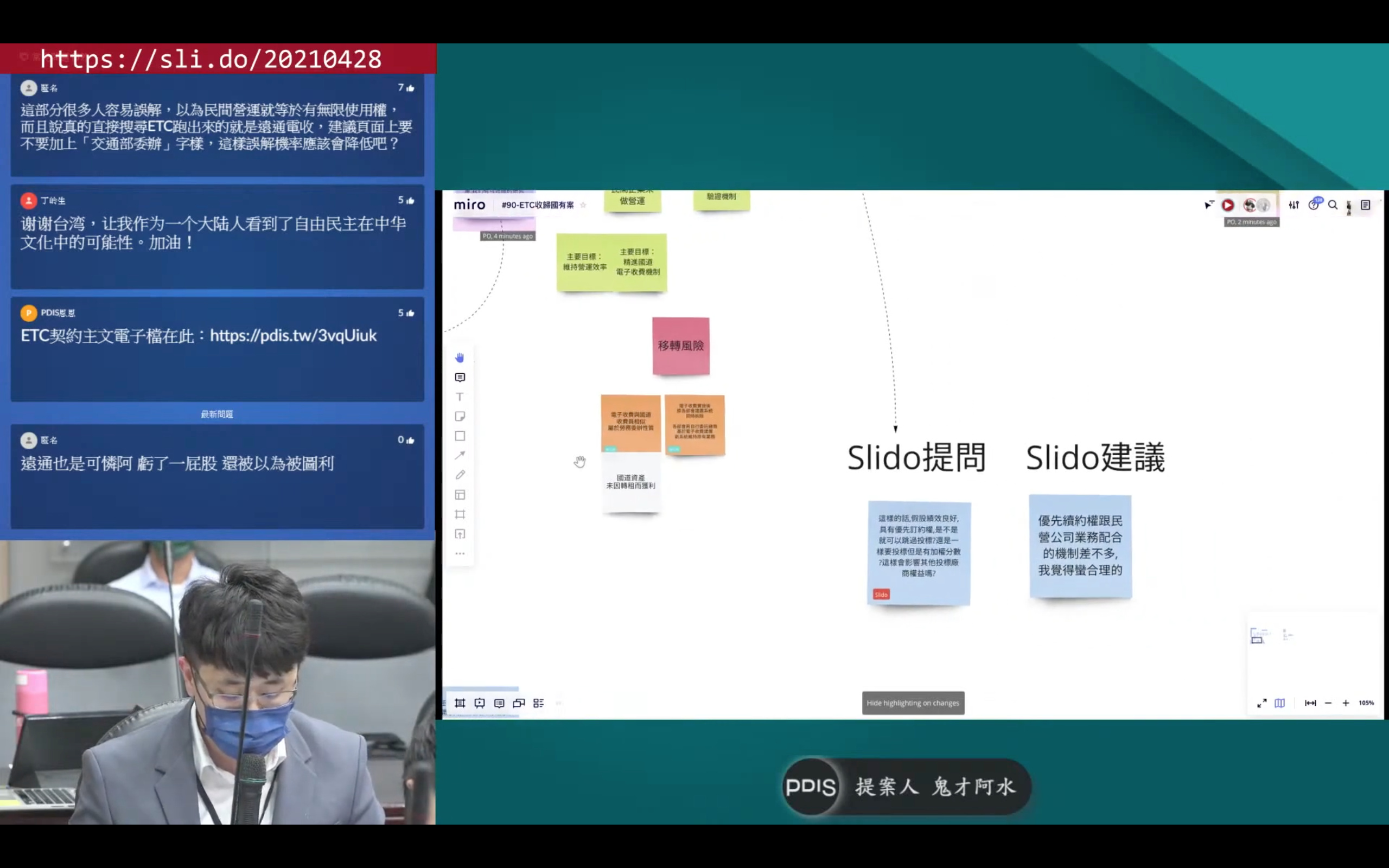"Advance Deployment" of Citizen Participation: How the Open Government Discuss ETC
Everyone wants Taiwan to be better, and I believe that the opportunity for dialogue has always been there.
When it comes to National Highway Electronic Toll Collection (ETC), everyone should be familiar with it. This is also one of the most tense cases of many traffic issues handled by our office through the “Open Government-Collaborative Conference”.
Opening up the government is one of my three core businesses since I joined the cabinet in 2016. Years of experience in participating in the Open Government Partnership Alliance has become an important niche for me to promote related work. Previous column the article also mentioned the “national action plan (nap)”.
The “collaborative meeting” that has been working for many years also adheres to the transparent and participatory policy process thinking, coupled with the meeting design and tools, to create a tension between the public and private sectors from mutual distrust, and gradually establish both responsible, A partnership that embraces traits. Simply put, open government makes public policies more responsive to citizens’ needs; collaborative meetings are a way of practice.
Most of the topics discussed in the collaboration meeting came from joint proposals made by the public on the Public Policy Participation Platform (JOIN). This time, “National Highway ETC was nationalized and the people choose the payment method.” At the beginning of this year, more than 5,000 netizens signed the agreement. After opening the government process, it became the 90th case collaboration meeting.
Of course, public policy is not about remedying headaches and feet; exploring the key to the problem first can find the most appropriate solution. The collaboration meeting has reached the 90th case. The Chief Accountability Department has been able to actively and skillfully contact the proponents to learn more about “Why the proposal?”, “What do you want to change?”, “What is the deeper concern?”

After contacting and clarifying, the sponsor expanded from the original three main demands to eight This item includes the common doubts of other netizens: In addition to explaining the legal and substantive significance of “nationalization”, netizens are also concerned about issues such as multiple payment methods, information security, and disclosure of contract content. The collective sentiment is precisely Distrust and opposition.
Therefore, it is very important to hold this collaborative meeting of “Diversified Positions”, “Equal Dialogues” and “Views by All Parties”. This is also the core principle that we have followed the same in the past five years of the collaboration meeting, no matter how the form changes.
Before the meeting, the organizer interviewed all stakeholders to collect more diverse opinions. Because Yuantong Telecom has a contractual relationship with the Ministry of Transportation, in order to ensure “speak with confidence”, our office will assist in the interview as a third party; the documents and materials of the ministry will be converted into easy-to-understand meeting materials and disclosed in advance with the content of the interview. Equality in access to information is more conducive to open dialogue; of course, collaborative meetings must also have open verbatim drafts for all parties to review the process of discussion.
This time the topic is highly watched. We use live broadcast to allow people who care about it to participate online. Through the “anonymous message” function of the necessary real-time interactive tool sli.do, online and offline participants do not have to worry about offending each other. If you are speechless, you can speak the truth without shy. Under the transparent principle of open government, care for human nature is also implemented.

Someone may ask: the BOT case has four years to expire, why is it Is this time to discuss ETC? In fact, when clarifying the eight demands one by one, everyone’s core concern is “how to make the future national highway electronic toll service better?”. Brainstorming for the new generation of ETC service content after 2025 can be said to be an “advanced deployment” of citizen participation. It also implements the spirit of the open government that should count the needs of users in the early stages of the policy.
Can this collaborative meeting really make all parties trust each other? I still remember that during the preparations for the conference, the organizers said helplessly: “In the past few years, we have talked about the same problem dozens of times. Why don’t the people believe it?” I want to thank my colleagues in the public sector for being open and transparent. Way, try to say it again. I am even more touched by the proponents and netizens who are willing to pay attention to public issues for a long time and spend a lot of time and energy on researching policies that may not directly benefit themselves. This requires extensive care and is also the foundation of civil society.
The proponent said after the meeting: “I was not satisfied with the information provided before the meeting. Civilians and officials often have different perceptions due to information gaps. However, in today’s meeting discussion process, I am willing to be precise about the various ministries and relevant parties. I’m very touched by the answer to the question. Everyone hopes to communicate more with the government. Everyone hopes that Taiwan is better.”
The chief of the coordinator said: “We are happy to make the discussion more transparent. Today, netizens I can first listen to our facts, discuss and provide suggestions rationally, and hope that netizens can see what we are doing, and these valuable opinions will also be incorporated into future negotiations.”
It can be seen that “talking is replaced by dialogue.” The effect of this has been reflected in the Discussion Results of the ETC Case. Dialogue is only the first step in trust; good dialogue can increase trust. As the sponsor said: “Everyone wants Taiwan to be better.” Even if the positions of the parties differ, as long as this concern remains unchanged, I believe that the opportunity for dialogue will always be there.
 (This work is licensed under a Creative Commons Attribution 4.0 International License.)
(This work is licensed under a Creative Commons Attribution 4.0 International License.)